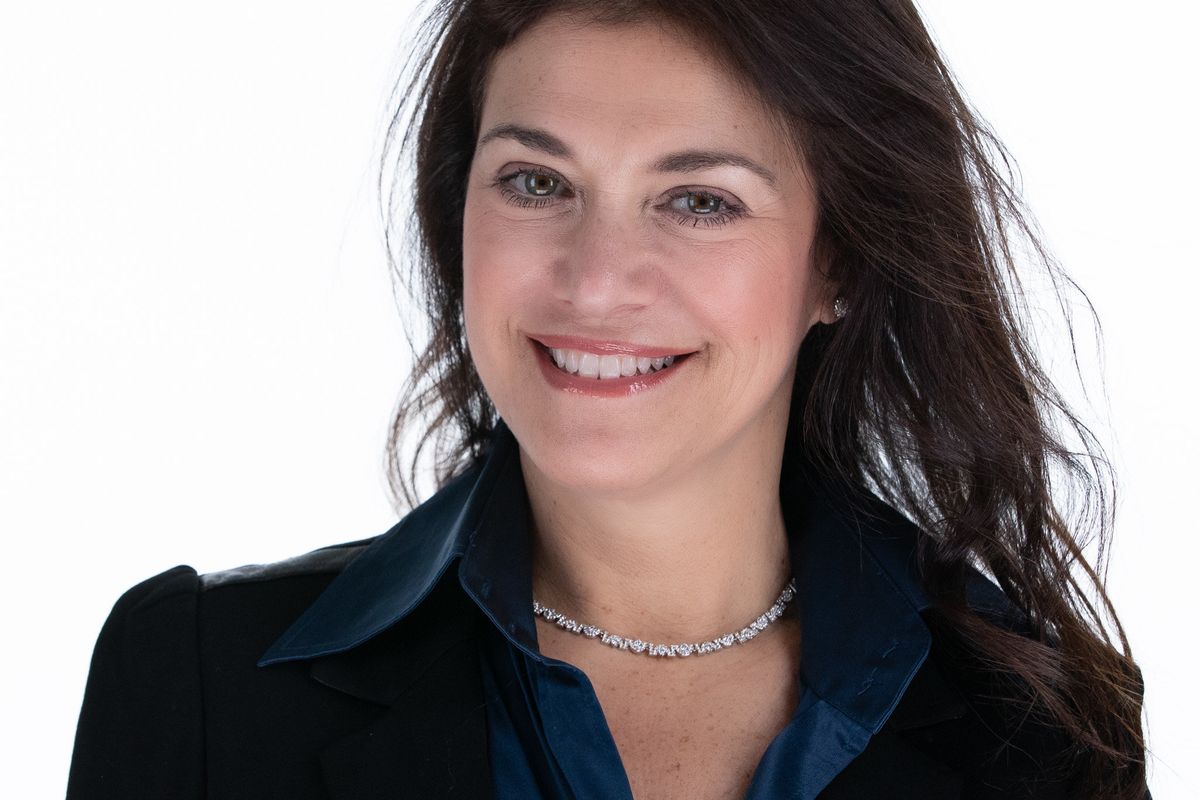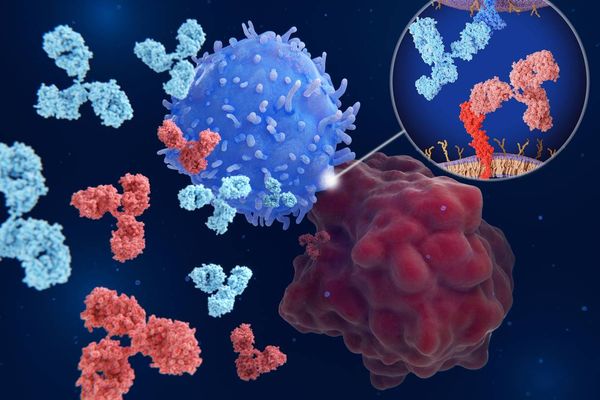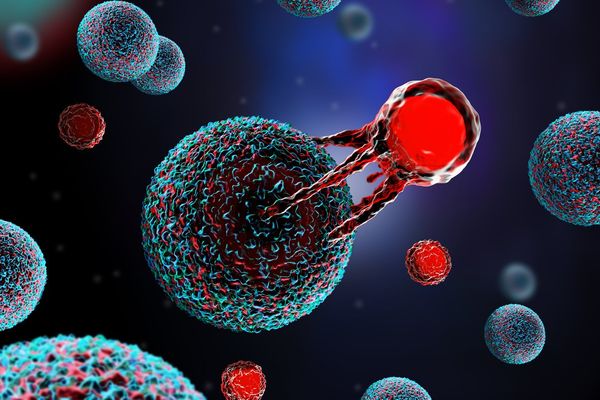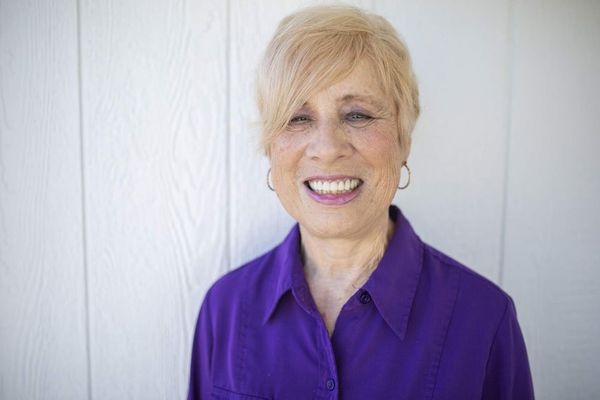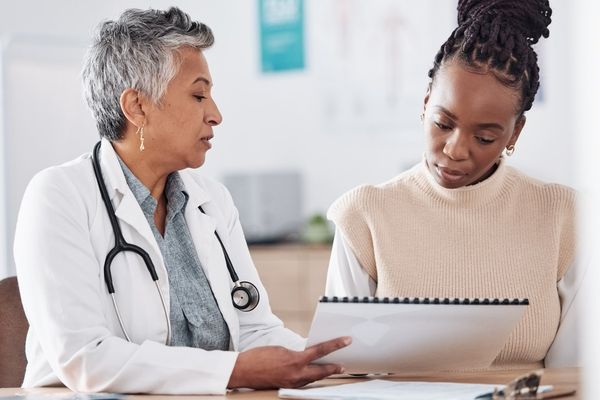As told to Diana Whitney
At first, I thought it was a hemorrhoid. I experienced a lot of itching and found blood in the toilet consistently for a few months. "This is not normal," I thought. So I went to see my gynecologist, who had actually informed me years ago that I had HPV.
She did a vaginal exam and said, "Everything's fine." Then she did a digital rectal exam, and I kind of jumped.
"Wow, that really bothered me," I told her.
"Well, the anus and the vagina are close together," she replied. She reassured me that I was fine, but I knew that something was wrong. I could feel this thing I thought was a hemorrhoid getting angrier. I remember sitting in Pilates class with my legs straight out in front of me — it felt like I was sitting on something.
The next day I went to my gastroenterologist. I'd had a gastro doctor since I was 40, because my grandmother had colon cancer and I'd been getting colonoscopies. I told him what I was experiencing, and he said, "OK, we're going to do the most embarassing test ever right now."
Then he did an anoscopy, where he inserted this tube with a light into my anus to view the tissues. When he was done, he didn't look at me. "We need to do a sigmoidoscopy tomorrow," he said.
"What's that?" I asked. I really trust this doctor. He explained, "It's like a colonoscopy, but it looks at the anal canal."
After we did that procedure, he told me I had a malignant tumor. The good news was that it was treatable.
So I looked at my watch and said, "All right, let's do this."
We followed up with a CAT scan, an MRI, PET scans, many different tests. I learned it was Stage 2 cancer. I never cried or got upset about my diagnosis, although I was in shock. I knew I had to move forward and focus on getting rid of the tumor. I treated it like something I needed to remove, almost like a wart.
I tacked a sheet on my bulletin board charting the days of radiation that I had to get through. It was a standard 28-day treatment, plus oral chemo. Every day when I came home from the hospital, I would cross off a day. At Sloan Kettering, I always had my friends with me. I'm not married, but I have a strong group of friends. They kept me company, supported me and asked any questions that I missed. The providers ended up calling us the Real Housewives of Sloan Kettering!
The first time my oncologist walked into the room, I thought, "Oh my god, is this my doctor?" He looked like he was 12 years old. But he was so good and always listened to my questions. I'll never forget when I was getting fitted for my custom cast — which keeps you in the exact same place every day for radiation — he came over and rubbed my shoulder, asking, "Are you OK?" That gesture meant everything.
My doctor warned me that the treatment wouldn't be a walk in the park. At the beginning I wouldn't feel anything, he said, but toward the end it would get rough. I was OK for the first three weeks — I would walk across town to the cancer center. Then it started to get worse. I was in a lot of pain and had extreme burning when going to the bathroom. I lost my appetite. I stopped walking to the hospital and needed a special "doughnut" to be comfortable sitting down.
Luckily I was using vaginal dilators, which were a new therapeutic technique to protect my lady parts during radiation. I've since spoken to anal cancer patients who didn't use dilators, and they unfortunately struggle with pain during sexual intercourse.
I stayed very positive throughout my whole treatment. I told myself, "When I'm done with this, I'm having a big party."
I threw that party in April of 2018, at my friend's restaurant-bar in Manhattan. I invited my oncologist, my gastro doctor and their nurses, and I had custom plaques made for all of them. Justine Almada, my good friend and executive director of the Anal Cancer Foundation, came and spoke because I wanted to have an educational piece.
It was a very fun night. We had toilet paper centerpieces, an ass pinata, goody bags with hemorrhoid cream and a big cake in the shape of an ass. It was hysterical! My comedian friend, who's very dirty, performed a set. We played '70s and '80s music, and to my surprise, the doctors were the last to leave.
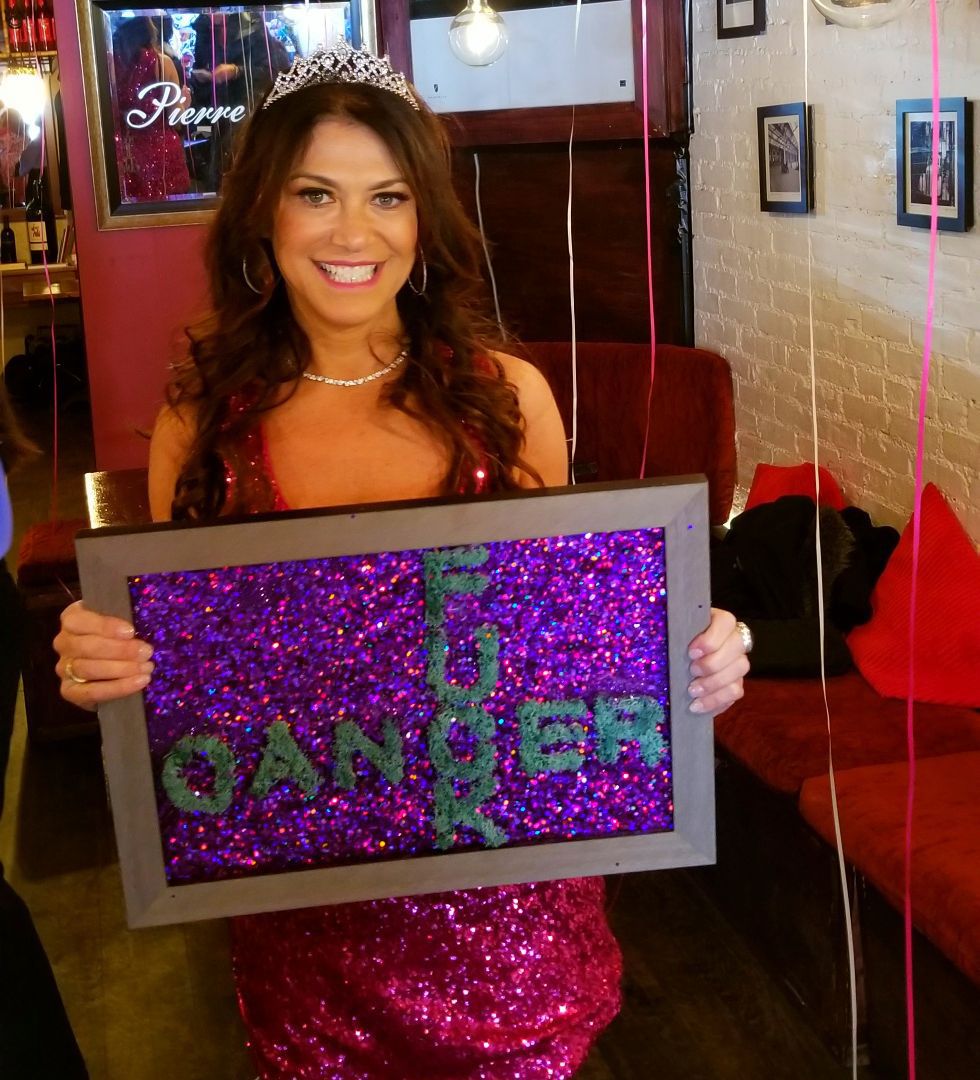
Lillian Kreppel at her post-cancer party in 2018
Then I started volunteering with the Anal Cancer Foundation. The more I talked to people, the more I heard the same story: My doctor thought it was hemorrhoids. My doctor told me to go home and put some cream on it. It wasn't even on their radar.
No one was talking about the HPV connection. I heard from other patients that their gynecologists had missed it, too. One woman had seen a poster in her doctor's office listing all the types of women's cancers, and HPV wasn't even mentioned. In fact, there are seven cancers linked to HPV, and five of them affect women: cervical, vulvar, vaginal, oral and anal.
I kept doing research, and I saw a post from actress Marcia Cross, revealing that she'd had anal cancer linked to HPV. I immediately got in touch with her through a friend, and Marcia was amazing from the moment we spoke on the phone.
Now we've been traveling around the country together for over a year, speaking at conferences and summits about what we've been through in an effort to save lives. We've formed a strong bond — there is no one else I would want to do this important work with. I am so honored to call her my dear friend.
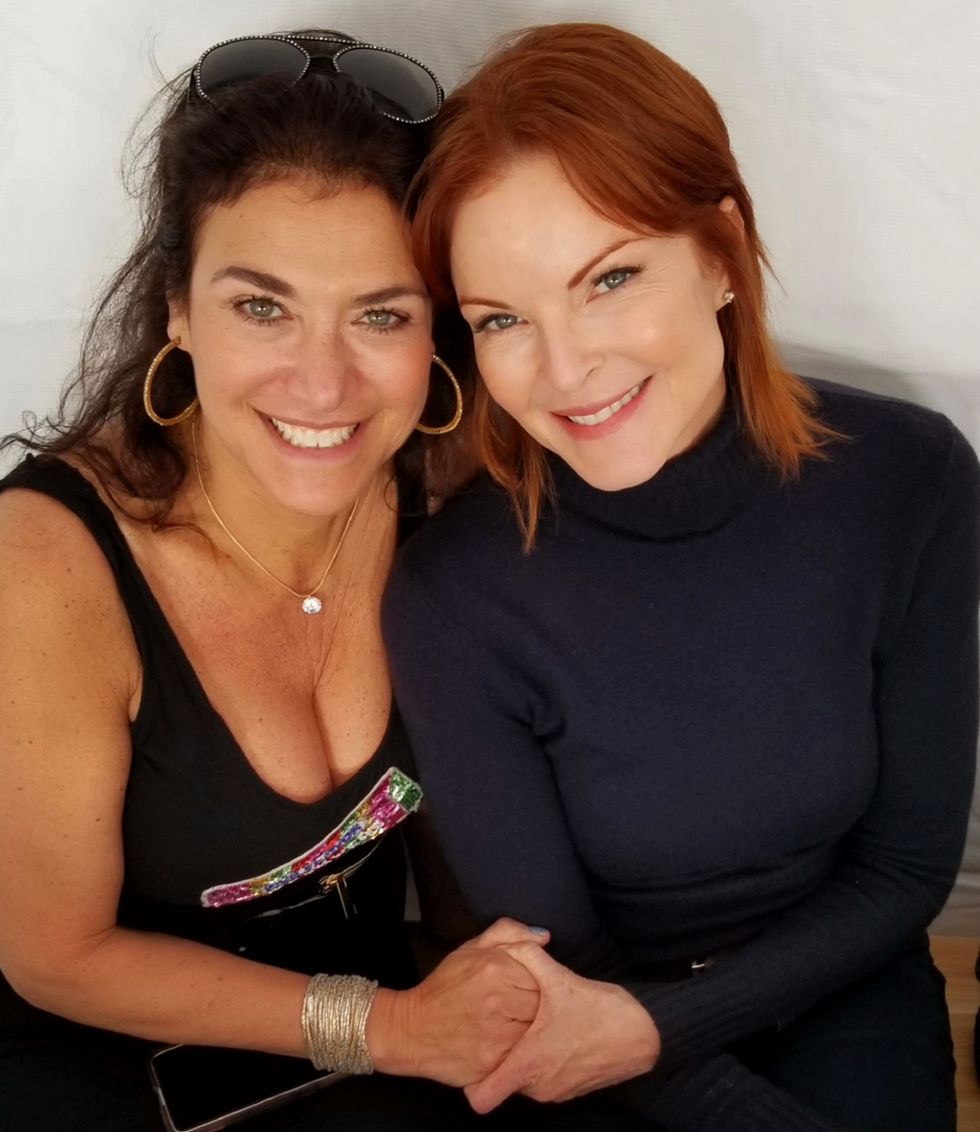
Lillian Kreppel and Marcia Cross at a conference in 2019
I realized how much we needed to raise awareness about this common disease, so I created the HPV Alliance, a nonprofit organization dedicated to filling in gaps in consumer and provider information. There's so much misinformation out there about HPV, even though it's one of the most pervasive viruses in the world. When a woman has an abnormal pap smear, it usually means she has HPV, according to Dr. Stephanie V. Blank, a gynecological oncologist on my board at the HPV Alliance. I believe women should always ask about their diagnosis, because often doctors don't state it.
I've learned you can have HPV even if you've only had one partner. You can get it through open mouth kissing, because it's a virus and not necessarily transmitted through sexual contact. I'm dedicated to spreading knowledge and saving lives through education, HPV prevention, and detection of the seven cancers.
People feel ashamed to talk about anal cancer. They're squeamish about that part of the body. A year ago I went with Marcia to a Farrah Fawcett Foundation event in Hollywood, and a 60-something woman came up to me. She said, "Oh, I need you to help me. I've been telling everybody it's colon cancer."
I told her, "Listen, you need to say what it is. Saying it helps people learn, relate and be vigilant about their own health."
I want to destigmatize anal cancer and encourage women — and men — to take ownership of their health. It's imperative that we engage the medical community in this conversation, so that what happened to me doesn't happen to anyone else.
Lillian Kreppel is a Cancer Thriver, Public Speaker, Entrepreneur, and Changemaker. After her anal cancer diagnosis in 2017, she created the HPV Alliance Organization and became a passionate advocate for the prevention and treatment of all HPV-related cancers. She is on a mission to change the negative stigma around whispering the words "HPV" and "anal cancer." https://hpvalliance.org
- Is It Hemorrhoids or Something Worse? - HealthyWomen ›
- Chemo Day Is Always Better With Costumes, Wigs and Props - HealthyWomen ›
- My Symptoms Were Dismissed as Hemorrhoids, but I Had Colon Cancer - HealthyWomen ›
- My Doctor Dismissed My Colon Cancer Red Flags as Normal Pregnancy Symptoms - HealthyWomen ›

